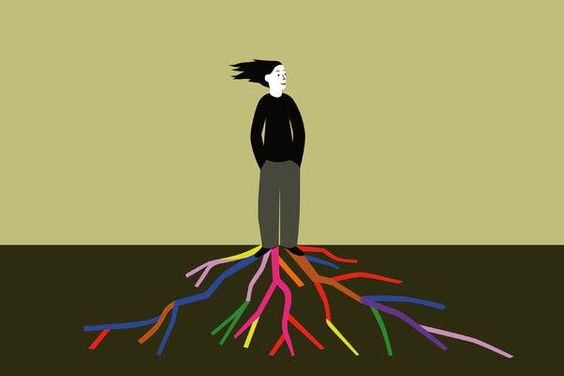Introduction
Life is a journey, and along this winding path, we encounter various experiences and challenges that shape us into who we are. Amidst the chaos of modern living, it’s easy to get lost in the hustle and bustle, losing touch with ourselves and what truly matters. That’s where the art of reflection comes into play – a powerful tool that can provide us with the clarity and insight we need to grow and thrive.
What is Reflection?
Reflection is not merely a fleeting thought; it is an intentional and purposeful process of self-examination. It involves looking back at our experiences, actions, and emotions to gain a deeper understanding of ourselves and our place in the world. Think of it as a mental mirror that allows us to see ourselves more clearly and make wiser decisions going forward.
The Benefits of Reflection
The art of reflection offers a plethora of benefits in various aspects of our lives. It enhances self-awareness, which is the foundation of personal growth and development. By understanding our strengths, weaknesses, and patterns, we can capitalize on our strengths and work on improving our weaknesses.
Reflection also fosters emotional intelligence, allowing us to recognize and manage our emotions effectively. When we’re in touch with our feelings, we can communicate more empathetically and form stronger connections with others, leading to healthier relationships.
Real-Life Example: The Power of Self-Awareness
Let’s meet Sarah, a driven and ambitious professional. She’s always striving to climb the corporate ladder, but she often finds herself overwhelmed and stressed. Through reflection, Sarah starts to notice a pattern – she takes on more than she can handle due to her fear of disappointing others.
Recognizing this pattern helps Sarah make a change. She learns to set healthy boundaries, say no when necessary, and prioritize her well-being. As a result, Sarah becomes more focused, productive, and, most importantly, happier with her life choices.
The Art of Reflection in Daily Life
- Journaling: One of the most effective ways to practice reflection is through journaling. Dedicate a few minutes each day to jot down your thoughts, feelings, and experiences. Ask yourself probing questions like, “What am I grateful for today?” or “What could I have handled better?” Writing down your reflections helps you gain perspective and track your growth over time.
- Meditation: Meditation is a powerful tool for self-awareness. Find a quiet space, focus on your breath, and let your thoughts flow. Acknowledge and observe them without judgment. This practice allows you to uncover deep-rooted beliefs and emotions that may be influencing your actions and decisions.
- Mindful Moments: Incorporate mindfulness into your daily routine. Whether it’s savoring your morning coffee or going for a walk in nature, be fully present in the moment. Mindfulness enables you to appreciate the little joys in life and find clarity amid the noise.
Real-Life Example: Mindful Decision Making
Meet John, an entrepreneur facing a tough decision about expanding his business. By practicing mindfulness, he becomes more attuned to his intuition. He takes a step back, reflects on his values and long-term goals, and realizes that rapid expansion might compromise his company’s core values.
John decides to pursue steady growth, focusing on maintaining excellent customer service. This thoughtful approach pays off, and his business thrives, earning a reputation for reliability and integrity.
Turning Reflection into Action
Reflection isn’t just about looking back; it’s also about using insights to move forward. Here’s how to turn reflection into meaningful action:
- Set Clear Goals: After gaining clarity through reflection, set specific and achievable goals. Break them down into smaller steps, making them easier to tackle. This approach prevents overwhelm and boosts your chances of success.
- Track Your Progress: Regularly review your progress towards your goals. Celebrate your successes and learn from any setbacks. Reflection during the journey keeps you on track and motivated.
- Seek Feedback: Don’t be afraid to seek feedback from trusted friends, mentors, or colleagues. They can provide valuable insights and perspectives you might have missed.
Real-Life Example: From Reflection to Achievement
Let’s follow Mary, an aspiring writer with a dream of publishing a book. After reflecting on her writing journey, Mary realizes that she tends to procrastinate when facing self-doubt.
To overcome this, she sets a clear goal of writing at least 500 words every day. She tracks her progress in a journal, celebrating her daily achievements. Additionally, Mary joins a writing group, where she receives constructive feedback and encouragement.
With the support of her newfound reflections turned into actions, Mary completes her book and successfully publishes it, fulfilling her lifelong dream.
Conclusion
In the midst of life’s chaos, the art of reflection stands as a beacon of light. By practicing intentional self-examination, we gain clarity, improve self-awareness, and make more informed decisions. Embrace the power of reflection in your daily life, and witness the profound impact it can have on your personal growth and development.



Leave a Comment